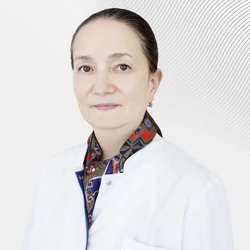He talked about what you need to know about men's health and how to ensure timely diagnosis and proper treatment of prostate cancer in an article for the reference and information project. Здоровье@mail.ru dedicated to medicine and health, Dmitry Pushkar, MD, Professor, Chief Urologist of the Ministry of Health of the Russian Federation, Head of the Urological Department of the European Medical Center.
What is prostate cancer?
To date, the causes of prostate cancer have not been fully understood. Although, of course, there are factors that increase the possibility of malignant tumor formation:
- men whose relatives suffer from prostate cancer develop this disease twice as often as men who do not have relatives with a similar disease; Prostate cancer is more common in men whose diets contain high amounts of animal fats.
Diagnostics
The initial stages of prostate cancer are asymptomatic for a long time, so many men may not even be aware of their disease. Although, of course, there are the main symptoms and signs of prostate cancer: frequent urination, pain in the perineum, the appearance of blood in the urine.
The biggest danger lies in the fact that prostate cancer gives early metastases, that is, the tumor can begin to spread to other organs (hip bone or spine, lungs, liver, etc.). Of course, before the appearance of metastases, surgical intervention can be performed that can stop the disease, but if the disease is detected at later stages, it is almost impossible to fight it.
That is why every man over the age of 45 is recommended to donate blood annually for PSA (prostate-specific antigen). PSA is an oncological marker, or a substance that indicates the presence or absence of malignant changes in the prostate tissues. The following are normal PSA values (the level of total PSA tends to increase with age):
40 - 49 years old - >2.5 ng/ml
50 - 59 years old - >2.5 ng/ml
60 - 69 years old - >3.5 ng/ml
70 - 79 years old - >6.5 ng/ml
The European Medical Center has a PSA Screening campaign until the end of 2011, according to which all men over the age of 45, in addition to the prescribed laboratory tests (blood sampling), are tested for PSA levels free of charge.
Treatment
If the PSA index exceeds the norm, it is necessary to contact a specialist who will conduct additional studies and, if necessary, perform a prostate biopsy, that is, take tissue samples for examination. If the diagnosis is confirmed, it is urgently necessary to decide on further treatment options. Depending on the age of the patient, concomitant diseases, the stage of the malignant process and other factors, there are various treatment methods.
The Urological Clinic of the European Medical Center uses a robot-assisted radical prostatectomy for the treatment of prostate cancer. The DaVinci robot is a surgical system and is a significant achievement of cutting-edge technologies in the field of medicine. It consists of an operating console and a control console, the interaction and interconnection of which provide the surgeon with an enlarged three-dimensional image of the surgical field and excellent mobility of minimally invasive instruments during surgery. The doctor controls the robotic instruments from the control console. At the moment, the specialists of the EMC Urological Clinic have fully mastered robot-assisted prostatectomy. We have the most extensive experience in conducting robot-assisted operations in Russia.
The significant advantages of this operation are minimal blood loss in the patient, as well as high reliability of tumor removal, which practically eliminates the occurrence of relapses. Based on the experience of operations that have already been performed, patients recover quickly after them.
Today, cancer is the most dangerous and intractable disease, therefore, according to European health standards, it is necessary to undergo annual medical examinations, paying special attention to the diagnosis of oncological diseases.
Was this information helpful?
Questions and answers
Ask a Question








.webp)





.webp)


.webp)
